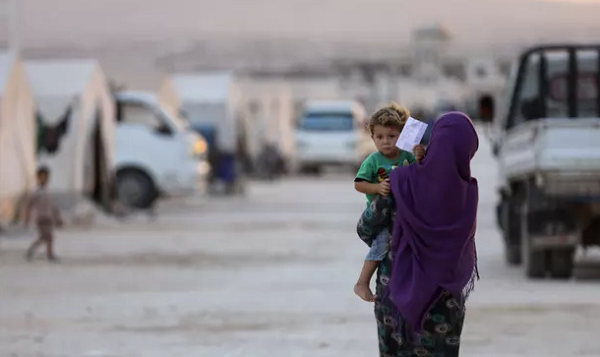
US to slash refugee admissions to historic low of 30,000
The US will allow no more than 30,000 refugees into the country in the coming year, down by a third from last year’s cap, the secretary of state, Mike Pompeo, has announced.
The new ceiling marks a historic low since the US Refugee Act was introduced nearly 40 years ago.
In announcing the cut, Pompeo said that the US would also process the applications of over 280,000 new asylum seekers, adding that over 800,000 asylum seekers were already in the US awaiting judgment on their claims.
He claimed: “These expansive figures continue the United States’ longstanding record as the most generous nation in the world when it comes to protection-based immigration.”
“Some will characterise the refugee ceiling as the sole barometer of America’s commitment to vulnerable people around the world. This would be wrong,” Pompeo said.
In recent decades, the US has been the main destination for the world’s refugees, admitting three out of four million worldwide since the passing of the 1980 Refugee Act. However, the number of refugees admitted each year has dropped dramatically from the more than 200,000 in 1980.
The International Rescue Committee aid organisation lambasted the lowering of the refugee ceiling. It issued a statement saying: “The United States is not only abdicating humanitarian leadership and responsibility-sharing in response to the worst global displacement and refugee crisis since World War II, but compromising critical strategic interests and reneging on commitments to allies and vulnerable populations, including religious minorities and those whose lives are in danger because they assisted US troops and US missions overseas.”
According to the UN High Commissioner for Refugees (UNHCR), the US resettled 33,000 refugees in 2017, while Canada admitted 27,000, ahead of Australia (15,000) and the UK (6,000). On a per capita basis, Canada was the most generous country when it
Those numbers do not include the number of asylum seekers who arrive by illegal means. Over 1.2 million came to Europe in 2015 and 2016, before the flow halved in 2017.
Pompeo’s announcement of new refugee figures was unscheduled and came on a day when the administration was drawing
The secretary of state said that the Trump administration had decided to cut back on refugee resettlement because of the backlog in the number of asylum requests pending from foreigners already in the US. Critics say that backlog is due in large part to the administration’s policy of slowing down the pace at which asylum requests are processed.
“The daunting operational reality of addressing the over 800,000 asylum cases demands renewed focus and prioritisation. The magnitude of this challenge is unequalled in any other country,” Pompeo said.
“In consideration of both US national security interests and the urgent need to restore integrity to our overwhelmed asylum system the United States will focus on addressing the humanitarian protection cases of those already in the country.”
Pompeo claimed the new ceiling “reflects our commitment to protect the most vulnerable around the world while prioritising the safety and wellbeing of the American people, as President Trump has directed.”
He also said that the US would focus on meeting the needs of refugees in their home regions and stopping their displacement in the first place.
“The best way to help most people is to promote burden sharing with partners and allies, to work to end conflicts that drive displacement in the first place and to target the application of foreign aid in a smarter way,” he said.
However, at the same
